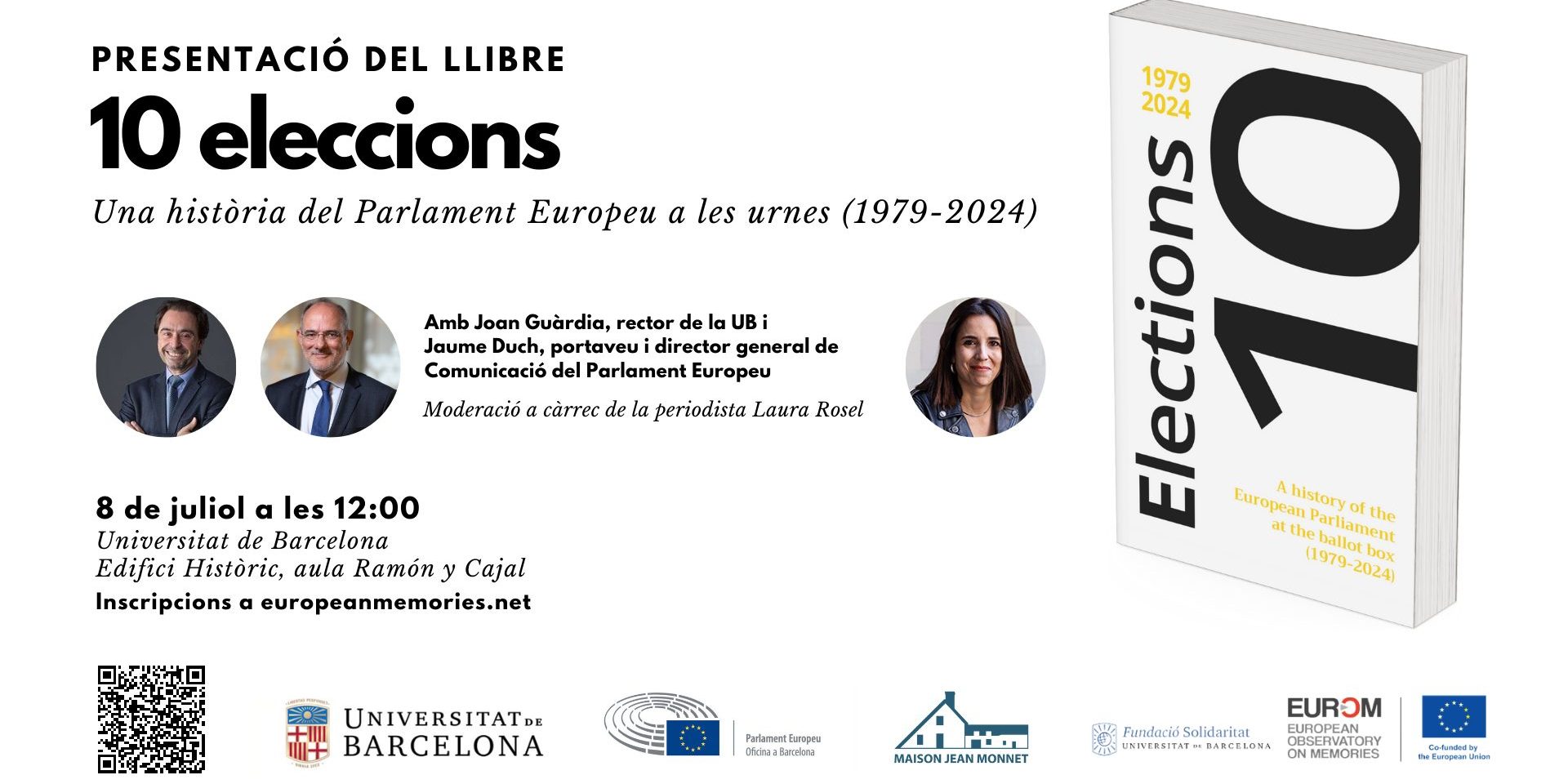10 elections. A history of the European Parliament at the ballot box (1979-2024) is the third in a series of publications commemorating key milestones in the process of EU integration. The collection is published by the European Observatory of Memories of the UB Solidarity Foundation and the Jean Monnet House, with the support of the European Commission and the European Parliament.
Jaume Duch, former UB student
Jaume Duch graduated in Law at the UB and, from 1986 to 1990, he was an adjunct lecturer in International Public Law and Coordinator of the Seminar on Community Institutions and Policies at the Faculty of Law.
About the book
The European Parliament elections of 2024 marked the tenth occasion for Europeans to directly elect their representatives at a supranational level. Since 1979, universal suffrage has enabled citizens to be at the heart of the decisions that affect their lives at the European level. This book surveys these ten formative milestones, their roots, and their implications for the future. The contributors, some of them firsthand actors or witnesses of the events, provide a compelling overview of the elections, covering a wide range of perspectives. Through both scholarly and hands-on approaches, the authors consider the ten European elections in their historical context, from the first steps towards a fully democratic Parliament to the gradual widening of its powers, with meaningful reflections on the future prospects of European democracy.
Related story
10 Elections. A history of the European Parliament at the ballot box (1979-2024)
Related activity
“10 Elections” book presentation in Barcelona

